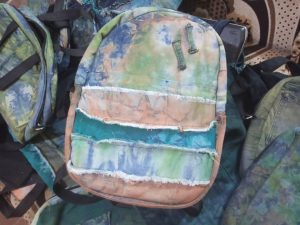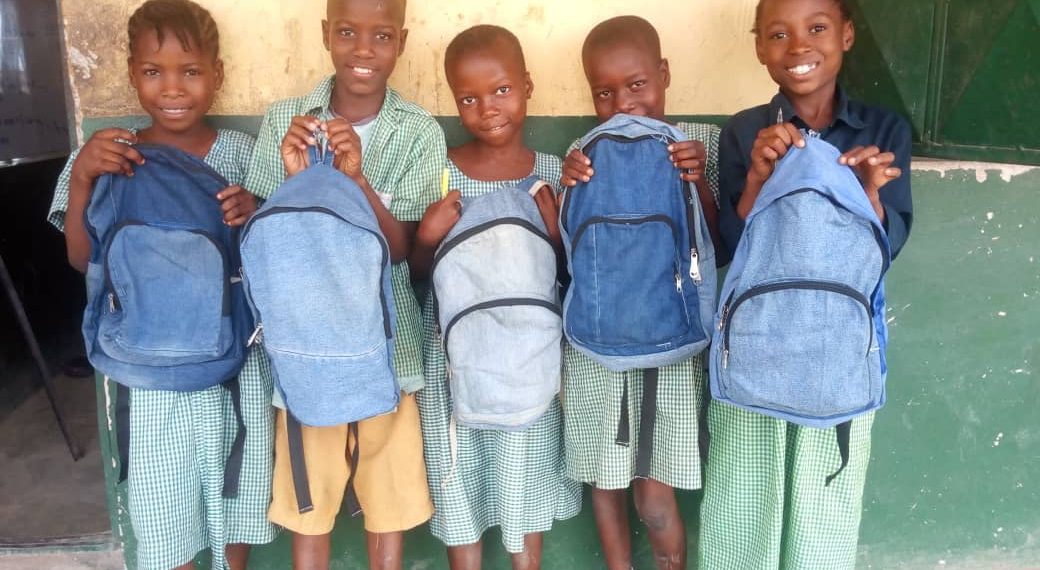By the Universal Basic Education (UBE) Act (2004), every Nigerian child is entitled to compulsory, and free basic education. All children, no matter where they live or their circumstances, have the right to quality education. Notwithstanding this provision of the law, many children could not access basic education in the country today.
As of 2021, 64 million children of primary school age remain out of school and Nigeria accounts for about 20 million according to a report by the Global Education Monitoring (GEM) of the United Nations Educational, Cultural and Scientific Organisation (UNESCO). UNICEF argued that poverty, among others, is an important factor that lifts the marginalisation which has been a blockage to primary education. The World Bank lamented that 4 in 10 Nigerians live below the national poverty line of 137, 430 naira ($381.75) per year, the implication of this is that Nigeria now records 95 million poor people as contained in a recent survey released in 2022.
In under-served communities in Ogun State, South West Nigeria, the rate of dropouts is so worrisome because most of the kids take begging for alms or suicidal thoughts as their last resort. To tackle the figures, the Federal Government of Nigeria introduced the Universal Basic Education Commission (UBEC) in 1999 to serve as a reform programme, aimed at ensuring the quality of basic education throughout the country, yet only 61 percent of 6-11 year-olds regularly attend primary school.
Filling The Gaps
But a non-profit organisation, Securecycle uses the approach of environmental sustainability to ensure that dropouts find their feet back in the classrooms. With recycled waste, the organisation aims at educating the society to sustainably interact with the environment.
The United States Environmental Protection Agency defines recycling as the process of collecting and processing materials (wastes) that would otherwise be thrown away as trash and turning them into new products.
In a bid to curb the rate of dropouts in rural communities of Ogun State, Securecycle uses old jeans as their weapon. Every month, the organisation launches a waste collection drive where they solicit for old jeans that people are no longer using or would like to throw away as trash. They do this by going from one door to another, one community to the other, touring about five communities.
“We don’t see those old jeans as waste because if properly utilised, it can be turned into new products. But this process needs creativity because challenges are not easy to solve, what we actually do is extend the life cycle of this faded material. We have been creating shocking styles to these bags,” Emmanuel Kilaso, the Managing Lead, told BONews Service.
After the drive, the team members visit primary schools in Abeokuta to seek the names and contact details of indigent students who are at the verge of drop-out or have already left the four walls of the school. Then, they would invite them for a workshop on the bags’ production. These selected students would benefit from the bags produced with recycled waste, a free scholarship for their primary school leaving examinations, and also access to training on educational development. To produce a single bag, the Securecycle would use two pieces of jeans and this will take about two and half hours. In Nigeria, a single bag costs 4,500 ($10.59)
Bearing in mind that faded jeans carry harmful germs, the non-profit organisation employs health experts who inspect them before they would start to work on its production. The bags come with different patterns designed through tie and dye before sewing them. To sustain the project, the organisation uses crowdfunding.
“After washing, the bags undergo sterilisation and disinfection to prevent contamination. We soak them in treated water with bleach for hours, then rinse and dry under the sun,” Afeez Adegbite, a public health expert who directs the programme, told BONews Service.
Inspired by his own humble background, Kilaso, the managing lead of the Securecycle noted that he longed for a world where every child attends school.
Initially, the nonprofit only offered the jeans-to-bags project since its inception in 2019. Two years later, Kilaso and his team added other packages as benefits for their targeted beneficiaries. With this, they are able to reach more than 40 schools from which they selected 15 pupils who benefitted.

Low Monitoring Affects Out-of-School
“One of the major challenges against primary education in Nigeria is lack of proper management by the government at all levels. In most cases, the right teachers are not even in schools. Learning and school activities are neither monitored nor supervised. The rate of out-of-school [children] is another indication that if quality education is not given its desired priority, the future of the country will be bleak. When the future is not assured, it signals unemployment, criminality, poverty and no development,” said Dr. Murtala Yusuf, a lecturer at the Department of Adult Education and Extension Services, Usmanu Danfodiyo University, Sokoto State.
Halimah Is Now Back To School
Halimah Solanke is one of the beneficiaries of Securecycle programme. In 2021, Solanke dropped out of Ebenezer African Methodist School, Ita-Oshi, Abeokuta. Though it wasn’t her wish, she left when she was in the third class of the elementary level as a result of poverty, coupled with discrimination from her fellow mates in the school.
“I couldn’t withstand how they used to stare at me. They would laugh and jeer on. Some would even play with the semovita nylon I used as a bag to pack my books,” lamented the 10-year-old girl, who related her experience n with emotion.
“Before I dropped out of school completely, my academic performance had dropped drastically. I was sad about my situation, until one day when uncle Kazeem brought this new bag for me and told me that his NGO would pay my common entrance fees.
“My father is a panel beater, and cars hardly come to his workshop. We struggle for survival at home. So to me, going to school again was like adding to the pains. Not that I do not want to go but because I had no choice.
“I thank God now that I am happy to be in school,” Solanke said while narrating her ordeal. She would want to be a teacher in the future to have a kind of knowledge that will help her to set up an organisation too.
“I would like to be a teacher; I want to found an organisation that will solve problems in society too. I want to know my books,” she said with a wide smile.
Sekinat Adeyombo is another beneficiary of the initiative. Aged 12, Adeyombo, whose father is an Okada rider, was gifted back along with other materials.
“I had no bag after I gave it to my brother, what I used to pack my books before these people came to our school is one soft thing. I did not come to school with joy because the boys would jeer, I am glad that they gave me this,” she relayed.
For Taiwo Akinsoji, the school was not a good option because of his disability. Being a poor child, the battle with down syndrome is enough. There was, however, a ray of hope for the teenage boy when SecureCycle selected him as one of its beneficiaries.
“They came here in my class four, telling me that I can do more. I love this bag and Uncle Kilaso is an inspiration for me.”
Defying The Odds
“One of the problems we have is that people are sceptical about the project. They have the African mentality that we wanted to use their clothes for money rituals, but when we showed them evidence of what we have done, they gave us more than enough jeans,” Kilaso stated.
To fight this challenge, the organisation used to show the would-be donors pictures of their impacts. The project is also constrained by lack of reliable data on drop-outs in the state.
The managing lead said sourcing the data as they go to the school themselves for inquiries hampered what they intended to do. This is because much time would have to be dedicated to strategic planning to achieve a better result.
This story has been made possible by Nigeria Health Watch with support from the Solutions Journalism Network, a nonprofit organization dedicated to rigorous and compelling reporting about responses to social problems.

